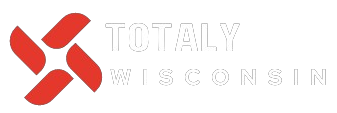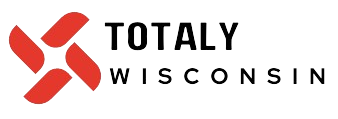In celebration of June Dairy Month, this month’s Leaders of the Land™ theme is Rick Roden, a dairy farmer from West Bend, Wisconsin.
Introduce yourself and tell us about your farm.
I’m Rick Roden Roden Echo Valley in West Bend. I run a farm with my dad and uncle. We milk 850 cows on a 40-station rotary milking parlor.
What does sustainability mean to you?
Sustainability means success. We are a multi-generational family farm and we hope that we will raise the next generation who will also be successful here.
What conservation practices do you exploit on your farm?
We have been experimenting with various conservation practices for over a decade and successfully using cover crops in our fields. Keeping your plant alive year-round helps protect the soil and absorb nutrients from the sun. The roots hold the soil in place and prevent manure, soil and fertilizers from running off.
Who are you working with to aid you achieve your sustainability goals?
We are members of the farmer-led breakthrough group Clean Farm Families in Ozaukee County. We work with other farmers in our region to share ideas and try up-to-date environmental practices. Working with other farmers in the area has helped us learn what is best for the soil and environment in our area.
How to protect water?
We want our water to be as sheltered and fit as possible. Planting cover crops helps us keep the water pristine because the living plant and root system keep the soil and nutrients in place.
My family drinks from a well on the farm and we are 100% sure that the water is sheltered for us to drink.
How does technology aid you be greener?
We built our up-to-date turntable to make it more productive. We exploit the Future Cow brush to pristine and prepare cows’ teats for milking. Milk meters monitor how much milk each cow produces daily. We also exploit an automatic teat spraying robot when the cows are about to come off the carousel to disinfect the teats before they go back to their stalls.
Every cow on our farm wears a collar – just like her personal Fitbit. We track their activity and rumination. We track activity for breeding purposes – when a cow is in heat, she is more energetic, which tells us she is ready to breed. Rumination tells us when our cows aren’t feeling well, so we can step in and aid them feel better.
Why are cows the best recyclers?
Eighty percent of what a cow eats is feed that we humans cannot eat. The corn, alfalfa hay, soybeans and wheat that I grow on my farm cannot be digested by humans, but a cow can consume all of these products and turn them into milk. This milk is made into products we can enjoy, such as cheese, ice cream, yogurt and butter.
Cows also produce manure. Manure is the best fertilizer we can apply to our land to aid grow corn, hay, soybeans and wheat to feed our cows. It really comes full circle: I grow crops to feed the cows, the cows exploit that feed to produce milk which is turned into dairy products for us to enjoy, and the cow produces manure which is used to fertilize the crops we plant.


